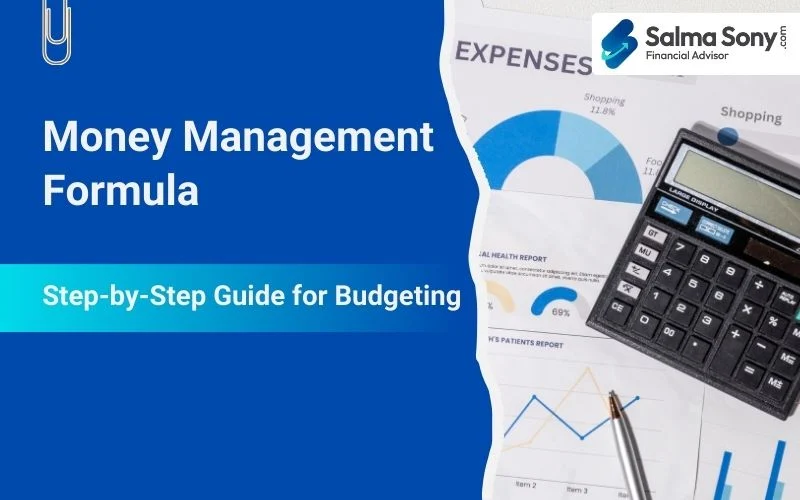In today’s era, when people have multiple expenses but limited sources of income, it becomes essential to manage money efficiently. In this article, we will learn the top 3 secret money management tips to help you manage your money better.

Top 4 secret money management tips to help you manage your money better
Maintain a Cash Inflow Outflow Tracker/Budgeting Excel
Maintaining a cash inflow outflow tracker/budgeting is the crux of money management. To keep a cash flow track, you can create a spreadsheet with your monthly income (all sources of income) and your regular expenses.
Divide these outflows into three categories :
- Household expenses: Regular Fixed Expenses including Loan EMIs).
- Lifestyle expenses: All wants like dining out, vacation, etc
- Investments: Monthly investments like Mutual fund SIP, monthly RD, NPS Contributions, etc.
After these outflows, the amount left in hand is considered savings; if it comes to negative, that means you are spending more than your income / utilizing a certain portion of your existing savings bank balance to take care of your expenses.
In my previous article, we learned the rule of thumb, “50/30/20 Rule of Budgeting”.
I suggest reading Money Management Formula: Step-By-Step Guide For Budgeting to get hands-on budgeting.
Open a Separate Need-Based Bank Account
Ensure you maintain a minimum of 2 savings bank accounts as a salaried individual, and if you are an entrepreneur/ business person, then three bank accounts.
As an individual, you must maintain one for your expenses and another for investment & EMIs. So, as soon as your salary gets credited, make sure you transfer that amount to an investment account so that investments and EMIs are taken care of. The balance available in the first account is allocated for monthly expenses.
As a self-employed / business person, the 1st two accounts are to be used as an individual, that is, for expenses and Investment/EMIs, and the 3rd account can be used to maintain the tax & business operation expenses like salary, subscription charges, etc.
For tax liability, you must consult your CA.
Start Monthly Investment for Annual Expenses
You must by now realize that all the expenses will not occur monthly.
For example – insurance premiums, child education fees, etc., and to make the budgeting work the best in your favor, start keeping the annual expenses aside monthly so that you are ready with funds at the time of payment. This process is like “Solving two problems at one time”; it will help you accumulate upcoming expenses with no pinch, and your savings will grow far better than in a savings bank account.
Uninstall Multiple Shopping Apps Or Switch off the notification
It’s no longer like the olden days when we shop only occasionally. Nowadays, there is no season of shopping, and there will always be one or the other sale going on. Be it a mailbox, WhatsApp, or messages everywhere, we get lucrative offers. And if you have a shopping app, then every day, you will be flooded with fantastic offers that make you buy something that is not required.
That’s why the best way is to avoid such offers. It’s better to uninstall multiple shopping apps or switch off the notifications, and only when you need to shop, that’s when you open the App.
By doing so, you can definitely have control over impulse purchasing.
Implement these four simple steps in your personal finance to manage your money well with the best experience.
Benefits of Top 4 Secret Money Management Tips
Helps live within means and not paycheck to paycheck
Budgeting is a powerful financial tool that provides a structured framework for managing your money. Budgeting allows individuals to live within their means, fostering financial stability and responsible financial behavior.
Helps Save money by avoiding overspending
It helps you limit your unnecessary spending habits and prioritize savings that will help you save more. Budgeting acts as a financial roadmap, guiding you toward the destination of increased savings.
Helps automate savings for financial goals
Automating your investment is a game changer. With the shared money management tips, you can automate your savings and investments where you don’t have the burden of doing stuff manually, and automation takes care of every part.
Improved decision-making
With a budget, you make financial decisions based on information and strategy rather than impulse; this leads to greater empowerment and assurance that your choices align with your financial goals.
Financial peace of mind
Financial peace of mind can be achieved by setting a system and keeping it aside.
Unveiling the Path to True Financial Peace of Mind
In today’s busy life, achieving financial peace of mind is a goal that resonates with many. True financial peace goes beyond merely having money; it involves a balanced relationship with your finances. Let’s explore unique strategies and a roadmap to help you attain lasting financial peace.
1. Develop a Mindful Money Mindset
Shift from Scarcity to Abundance: Embrace an abundance mindset, acknowledging that there is enough for your needs and goals. Practice gratitude for what you have, enabling a positive outlook on your financial journey.
2. Define Your Financial Values and Goals
Align Spending with Values: Identify your core financial values and set meaningful goals. Align your spending with these values, ensuring that your money serves a purpose aligned with your life aspirations.
3. Incorporate Mindfulness into Spending
Conscious Spending: Practice mindfulness in your spending. Before purchasing, assess its alignment with your values and whether it genuinely contributes to your well-being. Mindful spending reduces impulse purchases and fosters a sense of fulfillment.
4. Build a Robust Emergency Fund
Financial Safety Net: Buying life and medical cover and creating a substantial emergency fund provides a sense of security. Aim for at least six months’ worth of living expenses to safeguard against unforeseen circumstances, reducing anxiety about unexpected financial challenges.
5. Automate Savings Strategically
Set-and-Forget Savings: Automate your savings to ensure consistent contributions. However, take it further by strategically allocating funds to different financial goals, such as house purchase, travel, retirement, etc.
6. Create a Personalized Budget
Beyond One-Size-Fits-All: Customize your budget to suit your lifestyle. While conventional budgeting principles are essential, personalize your budget to accommodate your unique needs, preferences, and financial goals.
7. Embrace a Balanced Approach to Debt
Strategic Debt Management: Rather than viewing all debt as unfavorable, adopt a balanced approach. Prioritize paying high-interest debts for repayment while continuing with low-interest debts if closing can hamper your investments, contributing to long-term financial goals.
8. Practice Regular Financial Check-Ins
Stay Connected to Your Finances: Conduct regular financial check-ins to review your budget, track progress towards goals, and make necessary adjustments. This proactive approach fosters a continuous and mindful relationship with your money.
Achieving financial peace of mind is a holistic journey beyond traditional money management advice. You can create a pleasant relationship with your finances by adopting mindfulness, aligning your spending with values, and refining your financial approach. This unique and personalized strategy will lead to financial peace and enrich your overall well-being, allowing you to navigate life’s financial complexities confidently.
Frequently Asked Questions
Q-1: Why is money management important?
Money management is crucial for various reasons. It helps individuals achieve financial goals, handle unexpected expenses, reduce debt, and secure a stable financial future. Effective money management ensures that you control your finances rather than being controlled by them.
Q-2: What is the first step in money management?
The first step in money management is creating a budget. Understand your income, categorize expenses, and allocate savings and debt repayment funds. A budget provides a roadmap for your financial journey and helps you live within your means.
Q-3: How can I achieve peace of mind through money management?
Achieving peace of mind involves creating a budget, setting realistic financial goals, and embracing a disciplined approach to money management. Knowing where your money goes, having a financial plan, and being prepared for emergencies contribute to financial security and tranquility.
Q-4: What are some unconventional money management tips?
Unconventional money management tips include strategies like stealthy automation of savings, leveraging cashback rewards by using credit cards in a disciplined manner for additional income, etc. These unconventional approaches can complement traditional money management techniques.
Q-5: What is the 50-30-20 rule?
The 50/30/20 rule of budgeting is a guideline designed to help individuals manage their finances effectively. The 50/30/20 budgeting rule allocates your income into needs, wants, and savings.
Q-6: How can I invest wisely?
Investing wisely involves diversifying your portfolio, understanding risk tolerance, and having a long-term perspective. Consult with a financial advisor, stay informed about market trends, and explore investment options aligned with your financial goals.
Q-7: How can I save more money?
To save more money, start by tracking your expenses and identifying areas where you can cut back. Prioritize savings in your budget, automate transfers to a savings account, and consider setting specific financial goals to stay motivated.





